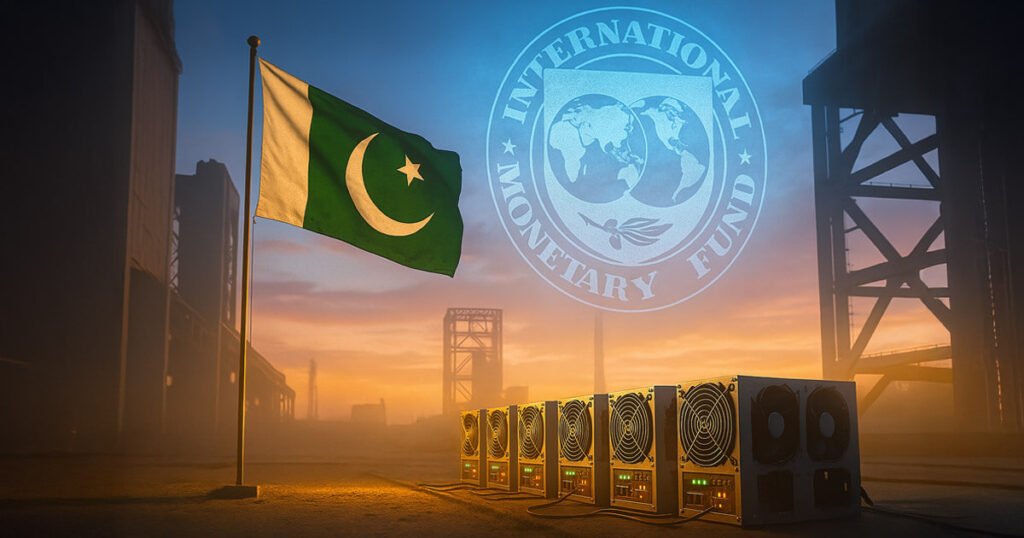Pakistan’s Bitcoin Mining Ambitions: Navigating IMF Challenges and Building a Crypto Future
In a recent development, the International Monetary Fund (IMF) has expressed reservations about Pakistan’s proposal for subsidizing electricity tariffs aimed at stimulating Bitcoin mining activities. Local media outlet Profit reported that the IMF has only granted a three-month relief period instead of the six months initially sought by Pakistan. This decision stems from concerns over potential market distortions and the ongoing strain on the country’s energy sector. The IMF’s cautious approach underscores a broader skepticism regarding national-level cryptocurrency adoption. Similar advisories have also been directed towards countries like El Salvador, where the IMF has warned against government involvement in Bitcoin-related initiatives.
The IMF’s hesitance comes amid Pakistan’s attempts to reshape its energy policies to incorporate emerging sectors such as cryptocurrency and Artificial Intelligence (AI). In light of the government’s ambitions, plans are underway to convert three underutilized coal plants into sources of energy for cryptocurrency mining operations and data centers. However, this initiative raises critical questions about the prioritization of national energy resources and the possible implications for electricity tariffs. The IMF has been particularly vocal in scrutinizing these energy plans, signaling the need for a more balanced approach in integrating new technologies into the existing framework.
Despite the IMF’s challenges, Pakistan is seemingly doubling down on its cryptocurrency aspirations. Pakistani officials have been vocal about their commitment to digital assets, positioning Bitcoin as an essential financial tool that could foster financial decentralization and innovation, particularly in the Global South. The government is establishing a high-profile advisory group for its newly formed Crypto Council, which aims to guide the nation’s efforts in the rapidly evolving digital currency landscape. Key figures in the advisory group include notable personalities from the crypto world, such as MicroStrategy’s Michael Saylor, Binance founder Changpeng “CZ” Zhao, and World Liberty Financial advisor Bin Saqib.
These strategic appointments not only reflect Pakistan’s ambition but also demonstrate its intent to influence global crypto policies and discussions. The formation of the Crypto Council is seen as a pivotal step in organizing the country’s approach to blockchain technology and digital assets. By aligning with individuals renowned in the cryptocurrency sector, Pakistan hopes to gain valuable insights and bolster its position on the international stage. This effort underscores the nation’s desire to be at the forefront of the digital financial revolution while grappling with the constraints posed by traditional financial institutions like the IMF.
A significant development associated with Pakistan’s crypto strategy includes a memorandum of understanding between the Pakistani Crypto Council and World Liberty Financial, a decentralized finance (DeFi) project with affiliations to former US President Donald Trump and his family. This partnership is indicative of Pakistan’s strategy to ally with influential global players in the cryptocurrency domain. Having such connections could open new avenues for investment and collaboration, further advancing Pakistan’s ambitions in the burgeoning crypto market.
As Pakistan navigates these complex waters, it must balance its aspirations with the realities of economic pressure and energy constraints. The steps taken by the government demonstrate a clear intent to innovate and evolve within the financial landscape; however, caution and strategic foresight will be essential in realizing these goals. The juxtaposition of IMF skepticism and the ambitious national strategy for cryptocurrency highlights the delicate dance between fostering innovation and ensuring economic stability. Pakistan’s journey into the world of Bitcoin and blockchain technologies is still unfolding, and the outcomes will significantly shape the future of its economic landscape.
In conclusion, Pakistan’s ongoing efforts to incorporate Bitcoin mining into its energy framework signifies a noteworthy shift towards digitalization and financial modernization. While the IMF’s apprehensions underline the need for comprehensive evaluations of these initiatives, the establishment of the Crypto Council and its strategic partnerships exhibit a commitment to advancing the crypto discourse. As this narrative evolves, stakeholders within and outside Pakistan will be keenly observing how the nation navigates the intersection of energy policy, financial innovation, and international regulations surrounding cryptocurrency.


